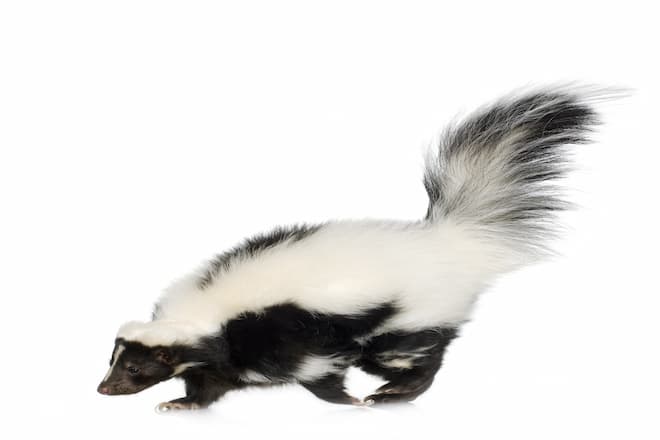Skunks, with their distinctive black and white fur and notorious scent glands, have long intrigued nature lovers. One common question that arises is whether skunks hibernate like some other animals during the winter months. Let’s dive into the skunk’s winter survival strategy and uncover the truth about their hibernation habits.
If you have skunks on your property and need to get rid of them, hire a professional skunk removal specialist from Pest Control Market
Understanding Hibernation
Hibernation refers to a deep sleep-like state adopted by certain animals to conserve energy during periods of extreme cold or scarcity of food. It involves a significant reduction in metabolic rate, heart rate, and body temperature.
Skunks and Torpor
Skunks, however, don’t technically fall into the category of true hibernators. Rather than entering a prolonged deep sleep, skunks enter a state known as torpor. Torpor is a state of decreased activity and metabolism, but it differs from hibernation in that skunks can still be easily awakened and respond to external stimuli.
Torpor
During winter, skunks experience torpor as a means of survival. Their metabolic rate, heart rate, and body temperature decrease, allowing them to conserve energy. This lowered metabolic state helps skunks get through the colder months when food is scarce.
Stocking up for Winter
In preparation for winter, skunks engage in hyperphagia, which is an increased food intake to accumulate fat reserves. They have an omnivorous diet and consume a wide range of food, including insects, fruits, nuts, small mammals, and bird eggs. This food hoarding ensures they have sufficient fat stores to sustain them throughout the winter season.
The Skunk’s Den
Skunks seek shelter in dens during winter. These dens can be found in a variety of locations, including hollow logs, rock crevices, and even abandoned burrows. Skunks may also dig their own burrows or repurpose the burrows of other animals. These dens protect from harsh weather conditions and predators.
Social Behavior
While skunks are typically solitary animals, they sometimes exhibit social behaviour during the winter months. It is not uncommon for multiple skunks to share a den, especially when it comes to females with their young. This communal living arrangement helps to provide additional warmth and companionship during the colder periods.
Skunk Spray
Despite their torpid state, skunks do not completely lose their ability to spray their notorious scent. If threatened or disturbed, they can still unleash their potent defence mechanism. It serves as a reminder to exercise caution when encountering a seemingly dormant skunk, as their ability to spray is not entirely diminished during torpor.
Emerging from Torpor
As spring arrives and temperatures begin to rise, skunks gradually emerge from their torpor state. They venture out in search of food and resume their normal activities. The duration of torpor can vary based on factors such as geographical location and climate conditions.
